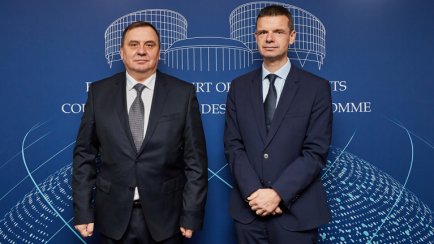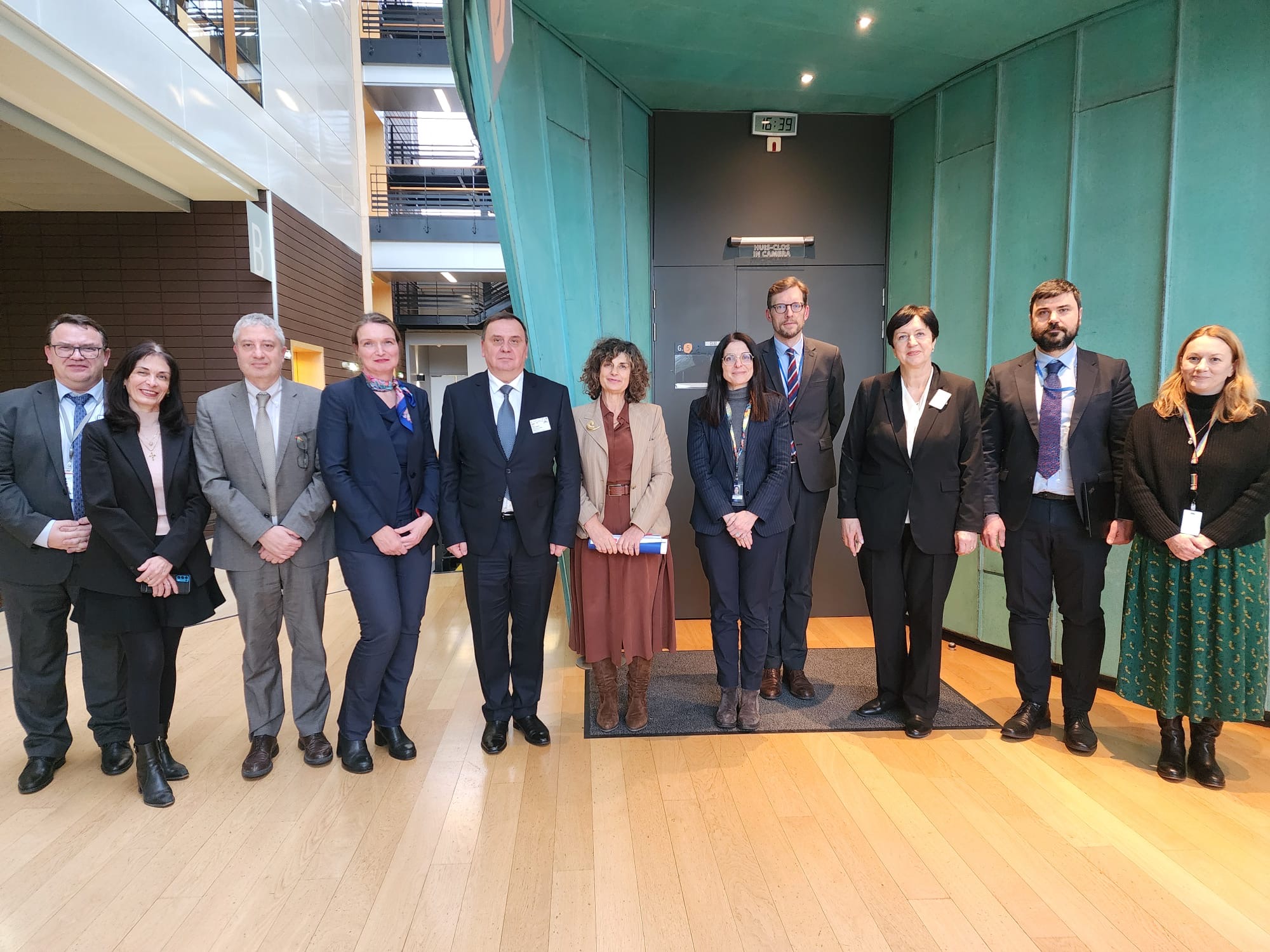Contact center of the Ukrainian Judiciary 044 207-35-46

The case law of the European Court of Human Rights has always had a significant impact on the practice of national courts, and since the beginning of a full-scale war, it has become especially important, as judges are aware that even despite the extremely difficult conditions in which the state is currently living, their work must meet the highest international standards, and their decisions, including in criminal proceedings for war crimes, must be perceived by the entire world community as fair and reasonable.
This was emphasized by President of the Supreme Court Stanislav Kravchenko during a meeting with President of the European Court of Human Rights Marko Bošnjak, which took place during the visit of the Supreme Court delegation to the Council of Europe.
The SC President informed about the challenges faced by the judicial system of Ukraine during the third year of large-scale Russian aggression, how the war affected the categories of cases submitted to the courts, and also provided the main statistical indicators of the Supreme Court's activities over the past year.
Marko Bošnjak noted that the events marking the opening of the judicial year are being held not only to discuss the achievements of the ECHR, but also to establish a constructive dialogue and effective cooperation with national judicial systems.
The President of the ECHR also noted that in extremely difficult circumstances, the judicial system of Ukraine continues to properly perform its functions, and judges remain committed to their mission.
In addition, Marko Bošnjak briefed the President of the Supreme Court on the situation in the ECHR in general, drawing attention to the fact that it is currently considering about 60 thousand individual applications and 14 interstate cases. Some of them concern topical issues related to the war in Ukraine, climate change, the use of modern technologies, etc. At the same time, the ECHR also considers cases on more typical issues, such as conditions of detention and the duration of proceedings.
ECHR judge from Ukraine Mykola Gnatovskyy said that 7,700 applications pending before the ECHR concern Ukraine, and most of them (4,200 applications) are directly related to the war. The rest of the applications relate to systemic problems that the ECHR has repeatedly stated in its judgments in cases against Ukraine.
Mykola Gnatovskyy also expressed hope that as a result of the introduction of a more efficient case management system, the ECHR will be able to ensure faster consideration of applications and timely response to current issues.
In addition, Marialena Tsirli, Registrar of the European Court of Human Rights, expressed her gratitude to the Supreme Court for the important contribution to the implementation of the joint initiative to launch the Ukrainian version of the ECHR Knowledge Sharing Platform and noted that the translation of materials posted on the platform into Ukrainian is a significant step towards increasing the availability of knowledge about the ECHR case law for a wide range of stakeholders.
Stanislav Kravchenko is convinced that the use of the Platform will have a significant positive impact on the application of ECHR case law in the decisions of national courts.
On January 31, 2025, as part of the opening of the ECHR judicial year, a judicial seminar on the protection of human rights in the world of artificial intelligence, algorithms and big data was held.
During the first session of the event, Gianluca Esposito, Director General for Human Rights and Rule of Law of the Council of Europe, highlighted the Council of Europe's standards in the field of artificial intelligence, and Lucie Cluzel-Métayer, Professor of Public Law at University Paris Nanterre, addressed the issue of freedom of speech in the AI era.
During the second session of the seminar, Professor and Judge of the Constitutional Court of Lithuania Vytautas Mizaras delivered a presentation on Artificial Intelligence and the Right to a Fair Trial, and Sandra Wachter, Professor of Technology and Regulation at the Oxford Internet Institute at the University of Oxford, focused on the issue of combating discrimination in the field of AI.
In addition, during the visit, Stanislav Kravchenko met with ECHR judge from Ukraine Mykola Gnatovskyy, representatives of the CoE Directorate General for Human Rights and Rule of Law - Director of Human Rights and Rule of Law Clare Ovey, Head of the Department for the Implementation of Human Rights, Justice and Legal Cooperation Standards Lilja Gretarsdottir, Head of the Department for Human Rights, Justice and Legal Cooperation Standard Setting Daniele Cangemi, the Head of the Department for the Execution of ECHR Judgments Frédéric Dolt, representatives of the Venice Commission Registry, as well as with the Deputy Head of the Cooperation Programs Division of the Department for the Implementation of Human Rights, Justice and Legal Cooperation Standards Lilit Daneghian.

The visit was organized by the Council of Europe project “Support for the functioning of justice in the war and post-war context in Ukraine".